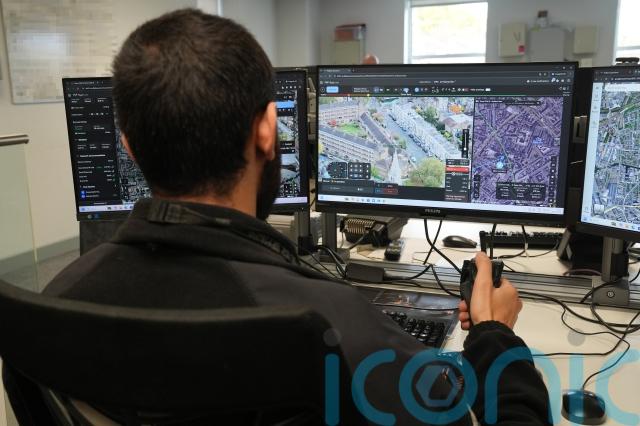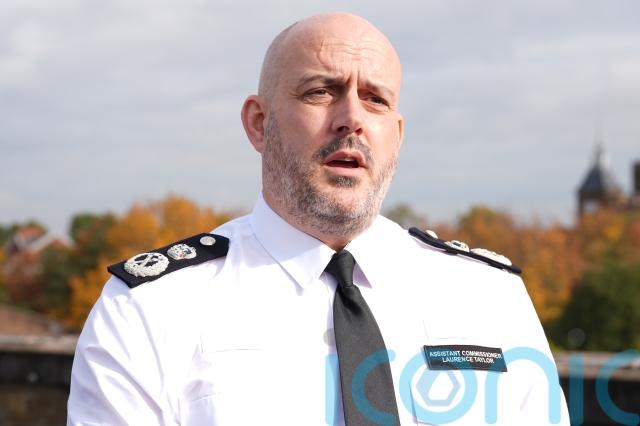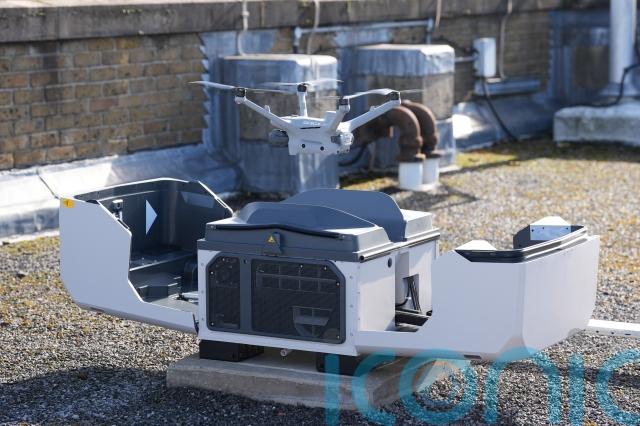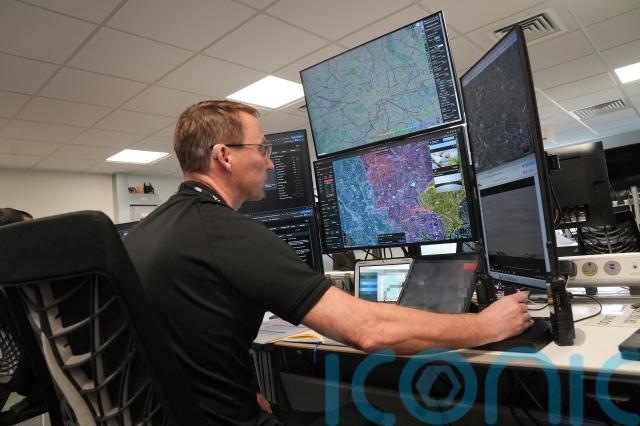
Police drones will be launched remotely in London to support officers responding to emergencies in a new trial.
The Metropolitan Police has launched the trial which will have drones feeding back intelligence to assist officers both on the ground and in a control room.
As part of a response to a 999 call, a drone will be launched remotely from the force’s control room and piloted by trained operators, the force said.
The drones will arrive on the scene within two minutes and from there will stream footage to assist officers.
They will be used for a variety of incidents, including searching for missing people, tracing a suspect, or arriving quickly to capture evidence at the scene of an incident, the Met said.

The Met said the new drones are quicker, quieter, cheaper and more environmentally friendly than police helicopters, while delivering the same operational effects.
The pilot programme, known as Drone as First Responder (DFR), is being introduced in London under the National Police Chiefs’ Council (NPCC)’s drones programme.
The project has initially launched in Islington, with the Met aiming to roll it out to two more sites across London before the end of the year, covering the West End and Hyde Park.

Assistant Commissioner Laurence Taylor, the national lead for drones, said: “We are building a Met that is more precise and efficient than ever before, and this new technology gives us a vital new tool to tackle crime in the capital.”
He added: “Aerial support to policing has always added huge value, because it gives us the ability to make informed decisions about deployment and look for people – that is a lot harder to do on the ground.
“By getting that immediate response with a drone, we’re going to have more precise information, we’re capturing best evidence at the very earliest opportunity, but most importantly, where scenes are chaotic or witnesses are confused, it allows us to inform our own decisions about how many officers, which assets we should deploy, and critically, if suspects or offenders are making away from the scene, we can quickly identify them and bring them into custody without the need for large, expansive area searches.”
He also said drones traditionally are piloted by an individual who always has to be able to see that drone and watch it flying, but these “will fly autonomously by itself to a scene”.

A remote pilot can then take control of that drone and use it for its policing purpose, then the drone will autonomously fly back to its base, he added.
He said: “So it provides more flexibility, more agility in our response, and ensures that it’s far more rapid than you would ordinarily get from a line of sight drone.”
Superintendent Taryn Evans, who leads the NPCC Drones Programme and the pilot for the Met, said: “This is an exciting opportunity to bring the many benefits and efficiencies of the Drone as First Responder programme to London, supporting both officer and community safety.
“We’ve been running trials of the programme in several different police forces with a range of operating environments from urban to rural and the technology has proven a gamechanger in many incidents.
“This pilot with the Met brings together our two years of learning and development and I look forward to seeing how it can enhance the operational response.”

The drones are housed in special boxes on the roofs of selected police buildings, where they sit charging and waiting for a call to launch, the force said.
The Met’s control room will make the decision to deploy a drone and it will be remotely launched to the incident.
Once overhead a scene, the drone’s imagery will be transmitted in real-time to the specific control room or mobile user, supporting the police response and recording footage for evidence.
At the end of the deployment, the drone will return to its landing area and the weather-proof box will close so it can be charged and prepared for its next mission.
Other police forces, such as Norfolk Constabulary, Cleveland Police, West Midlands Police, Hampshire & Isle of Wight Constabulary and Thames Valley Police Joint Operations Unit are also in the trial phase of this technology, which has been pioneered by the NPCC, the Met said.
Subscribe or register today to discover more from DonegalLive.ie
Buy the e-paper of the Donegal Democrat, Donegal People's Press, Donegal Post and Inish Times here for instant access to Donegal's premier news titles.
Keep up with the latest news from Donegal with our daily newsletter featuring the most important stories of the day delivered to your inbox every evening at 5pm.